Hardscaping can transform your outdoor space from a simple yard into a functional, aesthetically pleasing extension of your home. Whether it’s a new patio, retaining wall, or elaborate outdoor kitchen, planning and budgeting effectively are crucial for a successful project. In this guide, we’ll explore the essential steps to budgeting efficiently for your hardscape project, from understanding cost factors to working with contractors and managing your finances.
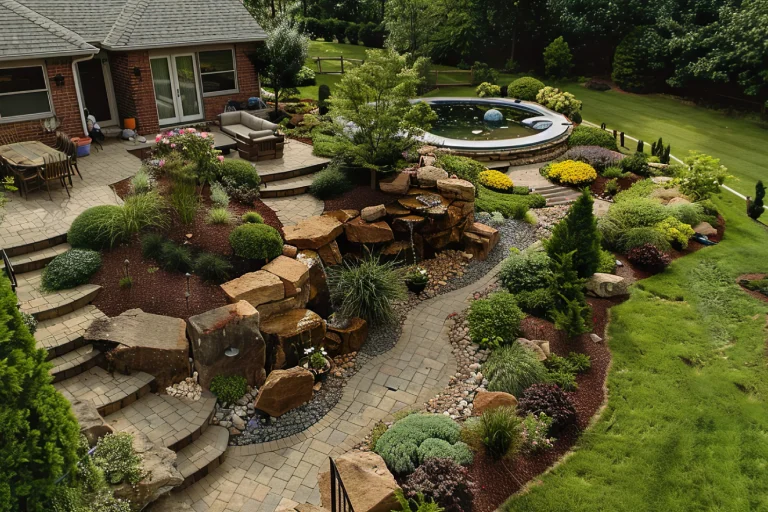
Understanding Hardscaping
Hardscaping refers to the non-plant elements of landscaping that provide structure, form, and functionality to outdoor spaces. This includes patios, walkways, retaining walls, fire pits, and outdoor kitchens. Unlike softscaping which involves plants and greenery, hardscaping involves stone, brick, concrete, and wood.
Types of Hardscape Elements
- Patios:
- Walkways:
- Retaining Walls:
- Fire Pits:
- Outdoor Kitchens:
- Water Features:
Patios are outdoor areas typically paved with concrete, flagstone, or pavers. They can serve as dining areas, relaxation spots, or extensions of indoor living spaces.
Paths of various materials provide functional routes through your garden or yard. They can be constructed using concrete, gravel, or pavers.
These structures hold back soil, create level areas, or add visual interest to a landscape. They can be built from stone, brick, or modular blocks.
Outdoor fire features that provide warmth and ambiance. They can be constructed from materials like stone, concrete, or metal.
These can range from simple built-in grills to fully equipped cooking stations with countertops, sinks, and storage.
Includes fountains, ponds, and waterfalls that enhance the aesthetic appeal and create soothing sounds.
Key Factors Influencing Hardscape Costs
Understanding what factors affect hardscaping costs will help you estimate your budget more accurately. Here’s a detailed breakdown of each factor:
1. Material Selection
Different materials come with varying price points. The choice of material will greatly impact your overall budget.
- Concrete:
- Pavers:
- Natural Stone:
- Brick:
Often the most cost-effective option. It’s versatile and can mimic the look of more expensive materials. Options include plain, stamped, and stained concrete.
Pavers are available in various shapes, sizes, and colors. They can be made from concrete, clay, or stone, and their costs are typically higher than basic concrete but less than natural stone.
This category includes materials like granite, flagstone, and limestone. These materials are durable and visually striking, but they come at a premium cost.
Known for its classic look and durability. Brick can be more expensive but provides a timeless appeal.
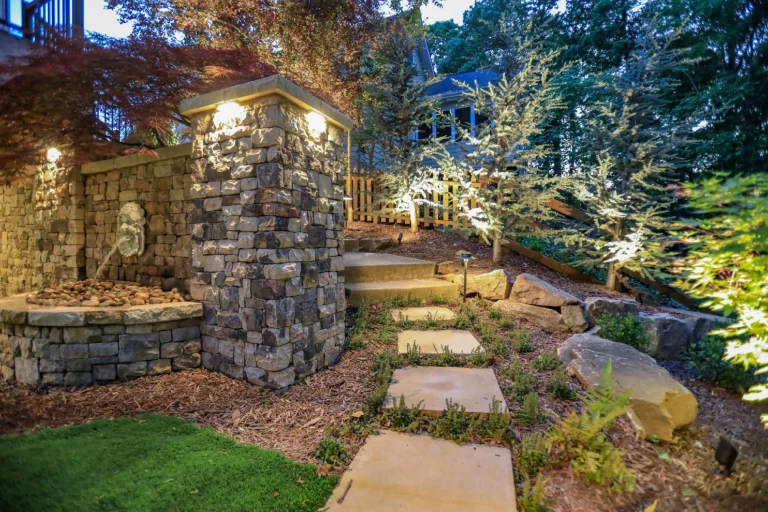
2. Design Complexity
The complexity of the design directly impacts the cost. Simple designs are more affordable, while intricate patterns and multiple elements increase expenses.
- Simple Designs:
- Complex Designs:
Straightforward, functional layouts with minimal features.
Include features like curves, patterns, and multi-level areas. These require more precise work and increase labor and material costs.
3. Site Preparation
Site preparation is crucial in any hardscaping project and can influence costs significantly.
- Grading and Excavation:
- Soil and Drainage:
Costs can rise if your site has uneven terrain or needs significant grading.
Poor soil conditions or inadequate drainage can increase costs by requiring additional work to ensure a stable foundation.
4. Labor and Installation
Labor costs can vary based on the project size and the installation’s complexity.
- Professional Installation:
- DIY:
Hiring a skilled contractor ensures quality and efficiency but comes at a cost. Labor costs are generally higher for complex installations.
Tackling the project yourself can save money but requires time, skills, and tools.
5. Additional Features
Features like lighting, irrigation systems, or built-in furniture will also impact your budget.
- Lighting:
- Irrigation Systems:
- Built-In Furniture:
Outdoor lighting adds aesthetics and safety; the cost depends on the type and number of fixtures.
Essential for maintaining greenery around hardscape elements. Automated systems add to the cost but offer convenience.
Custom seating or outdoor kitchens can significantly increase costs.
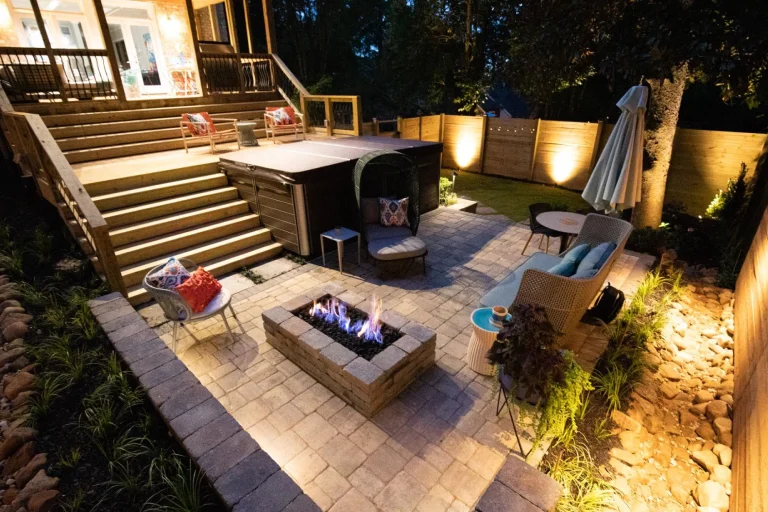
Creating a Realistic Budget
Now that you understand the factors that influence hardscape costs, it’s time to create a budget that aligns with your project goals and financial constraints.
1. Define Your Goals
Clarify what you want to achieve with your hardscape project. Are you looking to enhance your outdoor living space, add functionality, or improve aesthetics?
- Functionality:
- Aesthetics:
Consider how the space will be used. For example, an outdoor kitchen might be a priority if you love entertaining guests.
If you want to enhance curb appeal, you might invest more in high-quality materials and complex designs.
2. Research Costs
Conduct thorough research to understand the costs of different materials, designs, and features.
- Get Quotes:
- Material Costs:
Obtain quotes from multiple contractors to compare prices and services.
Check prices at local suppliers or online to understand material costs.
| Hardscape Element | Materials | Cost Factors | Typical Cost Range | Additional Considerations |
|---|---|---|---|---|
| Patios | Concrete, Pavers, Natural Stone | Material choice, design complexity, site preparation | $10 – $50 per square foot | Consider ongoing maintenance and sealant costs |
| Walkways | Gravel, Concrete, Pavers | Material type, length, site grading | $8 – $30 per square foot | Ensure proper drainage to prevent erosion |
| Retaining Walls | Stone, Brick, Modular Blocks | Wall height, material type, soil conditions | $20 – $60 per square foot | nclude costs for engineering if wall height is significant |
| Fire Pits | Stone, Concrete, | Design | $500 – $3,000 | Factor in |
3. Allocate Funds
Divide your budget into different categories based on your project’s needs.
- Materials:
- Labor:
Allocate a portion of your budget for materials, including any high-end options.
Set aside funds for professional installation if needed.
Additional Features: Reserve part of your budget for extras like lighting or irrigation systems.
4. Plan for Contingencies
Unexpected issues can arise during any project, so including a contingency fund is wise.
- Unexpected Costs:
Allow 10-20% of your budget for unforeseen expenses such as hidden utilities or additional site preparation.
Working with a Hardscape Contractor
Choosing the right contractor is essential for a successful project. Here’s how to find and work with a reputable hardscape contractor:
1. Research and Selection
Look for contractors with a strong reputation and experience in hardscaping.
- Recommendations:
- Online Reviews:
- Portfolio:
Ask friends, family, or neighbors for suggestions.
Check online reviews and ratings to gauge contractor reliability.
Review the contractor’s previous work to ensure their style and quality meet your expectations.
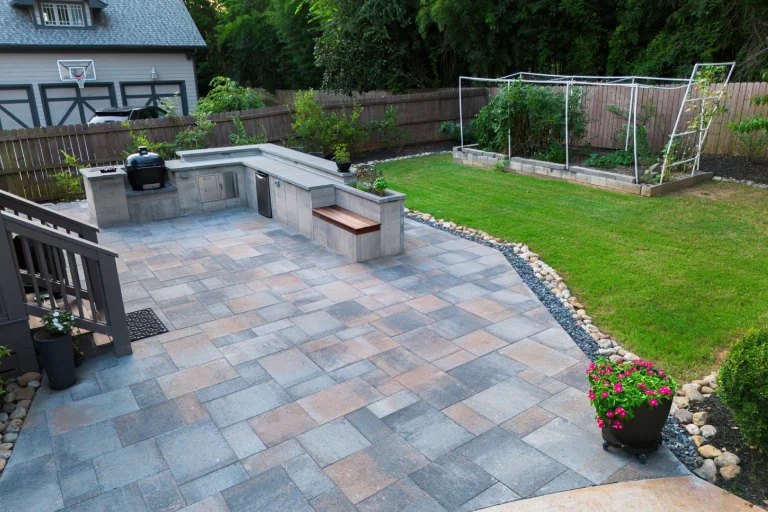
2. Obtain Multiple Quotes
Get quotes from several contractors to compare pricing and services.
- Detailed Estimates:
Ensure the quotes include a detailed breakdown of materials, labor, and additional costs.
Scope of Work: Confirm what is included in the scope of work to avoid misunderstandings.
3. Check Credentials
Verify that the contractor is licensed, insured, and bonded.
- Licensing:
- Insurance:
Ensure the contractor holds the necessary licenses for your area.
Confirm that the contractor has liability insurance to cover potential damages or accidents.
Are you looking for hardscaping contractors near me in Atlanta?
4. Communicate Your Vision
Communicate your project goals, budget, and any specific requirements.
- Design Plans:
- Budget Constraints:
Share any design plans or ideas you have.
Discuss your budget constraints to ensure the contractor can work within your financial limits.
5. Monitor Progress
Stay involved throughout the project to ensure it stays on track and meets your expectations.
- Regular Updates:
- Quality Checks:
Request regular updates on progress and address any concerns promptly.
Inspect the work periodically to ensure it meets the agreed-upon standards.
DIY Hardscaping Projects
If you’re considering a DIY approach, here’s how to tackle your hardscaping project effectively:
1. Start Small
Begin with smaller projects to gain experience and confidence.
- Simple Projects:
- Tool Requirements:
Start with projects like stepping stones or small garden paths.
Ensure you have the necessary tools and equipment.
2. Plan and Design
Create a detailed plan and design for your DIY project.
- Blueprints:
- Material List:
Draw up blueprints or sketches of your design.
Compile a list of materials and tools required.
3. Budget for DIY
While DIY can save money, it’s essential to budget for materials and tools.
- Material Costs:
- Tool Rentals:
Research and compare prices for materials.
Consider renting tools if you don’t have them.
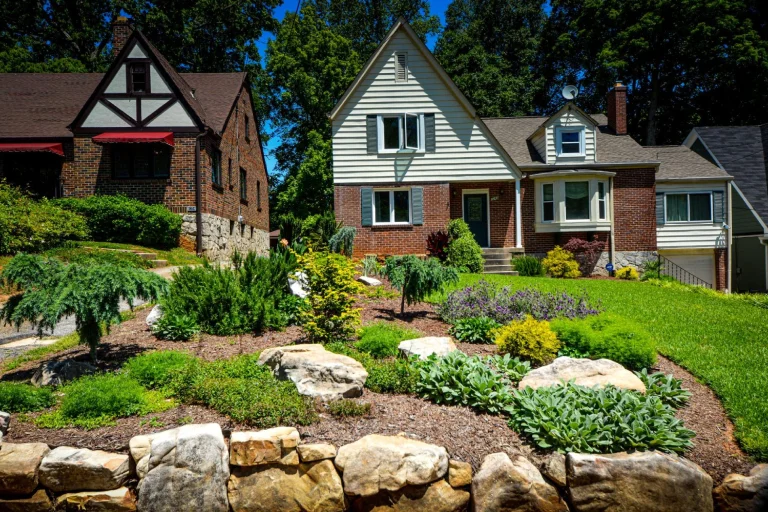
4. Safety and Permits
Ensure you follow safety guidelines and obtain any necessary permits.
- Safety Gear:
- Permits:
Wear appropriate safety gear such as gloves and goggles.
Check if permits are required for your project and obtain them if needed.
5. Learn and Adapt
Take advantage of online resources and tutorials to learn new skills.
- Online Tutorials:
- Adapt and Adjust:
Watch videos and read guides to understand techniques and best practices.
Be prepared to adapt your plan based on what you learn and encounter during the project.
Maintaining Your Hardscape
Proper maintenance is key to preserving the beauty and functionality of your hardscape elements.
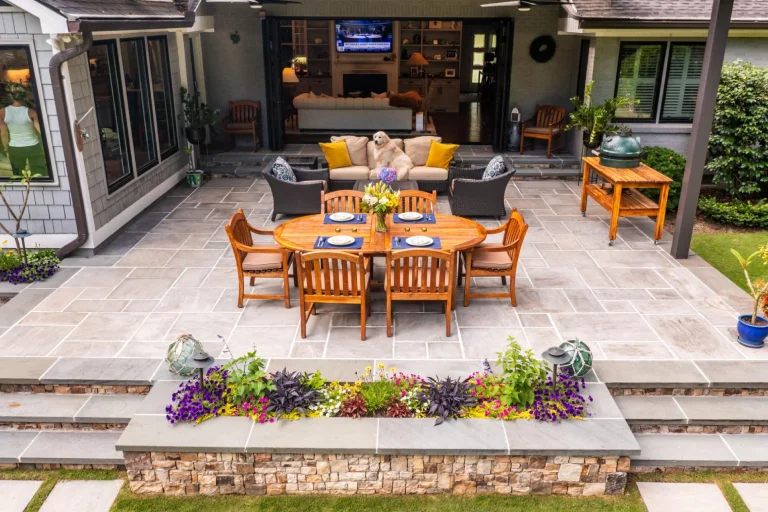
1. Regular Cleaning
- Patios and Walkways:
- Retaining Walls:
Sweep and wash surfaces regularly to remove debris and stains.
Inspect for cracks or damage and clean with appropriate methods.
2. Sealing and Protection
- Sealing:
- Protection:
Apply sealant to protect surfaces from weathering and stains, particularly for concrete and natural stone.
Use protective measures like covers or mats to prevent damage from heavy objects or extreme weather.
3. Repair and Upkeep
- Repairs:
- Weeding and Landscaping:
Address issues such as cracks or shifting immediately to prevent further damage.
Keep surrounding areas well-maintained to avoid invasive plants or erosion.
Conclusion
Budgeting for a hardscape project involves careful planning, research, and financial management. By understanding the costs involved, setting a realistic budget, and working with contractors or taking a DIY approach, you can create a stunning and functional outdoor space without exceeding your financial limits. Remember to plan for unexpected expenses, choose materials wisely, and maintain your hardscape to ensure it remains an attractive and valuable part of your property for years.
Outdoor Makeover and living spaces is known for providing you the best hardscape installation services near me in Atlanta and surrounding areas. We professionally examine your space and build something unique that goes well with your taste and outdoor style. Moreover, we curate a selection of plants, trees, and landscape lighting that will beautifully complement your property. We take pleasure in involving our customers in the backyard hardscaping design process, encouraging their active participation.
Whether you are seeking landscape and hardscape services and simply want to upgrade your backyard? We are just a call away!

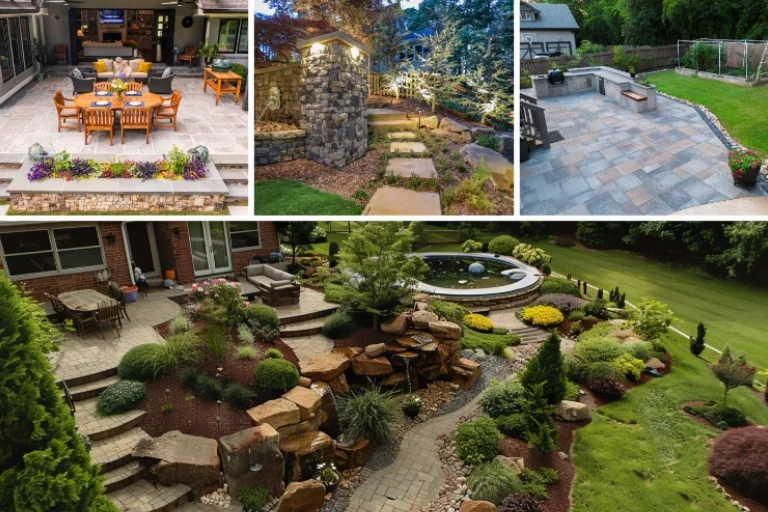
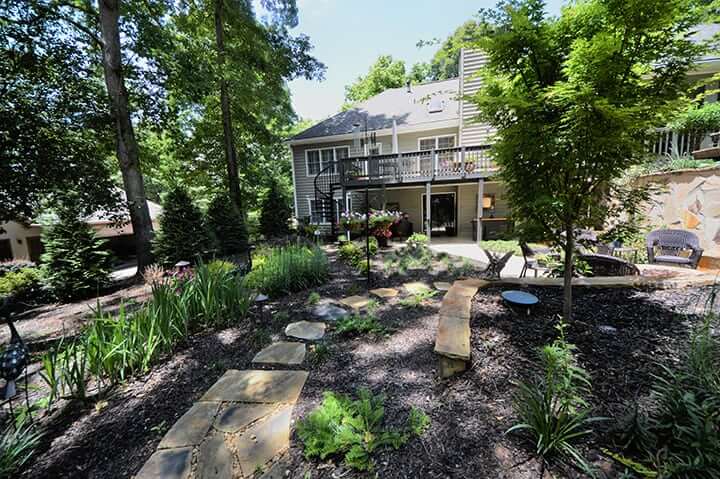 Hardscaping & Softscaping: The Perfect Landscaping Duo
Hardscaping & Softscaping: The Perfect Landscaping Duo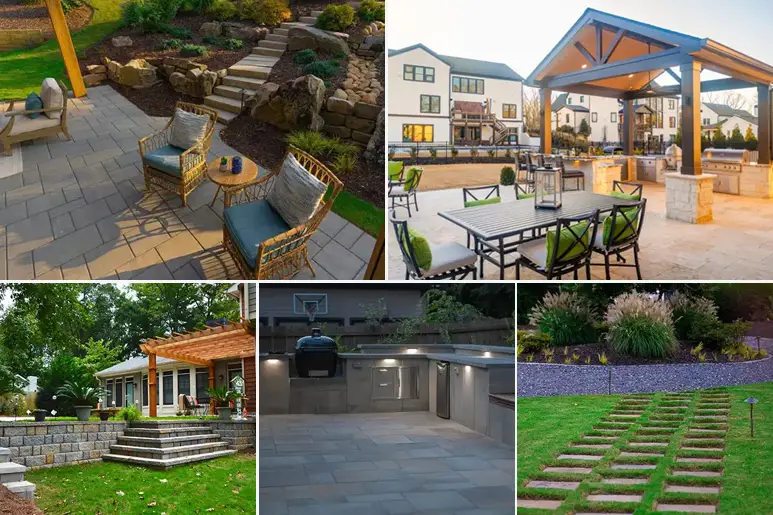 Unique Hardscape Ideas to Install This Spring
Unique Hardscape Ideas to Install This Spring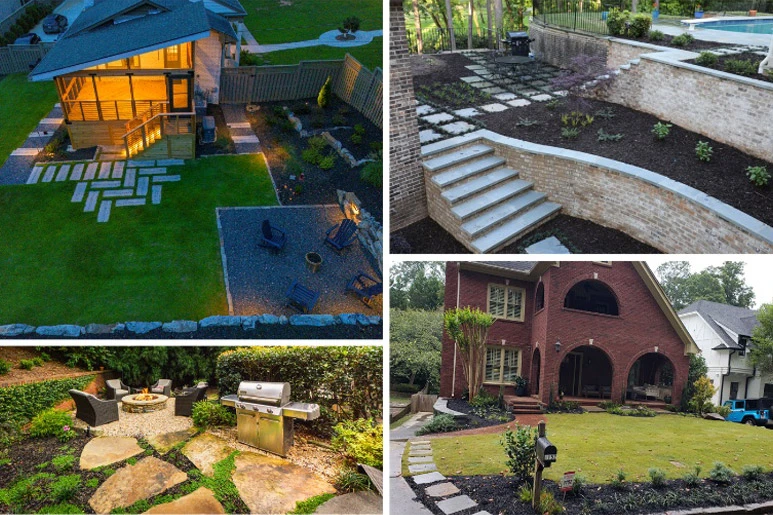 How To Find the Best Hardscape Designers in Atlanta
How To Find the Best Hardscape Designers in Atlanta
LET'S BE SOCIAL: